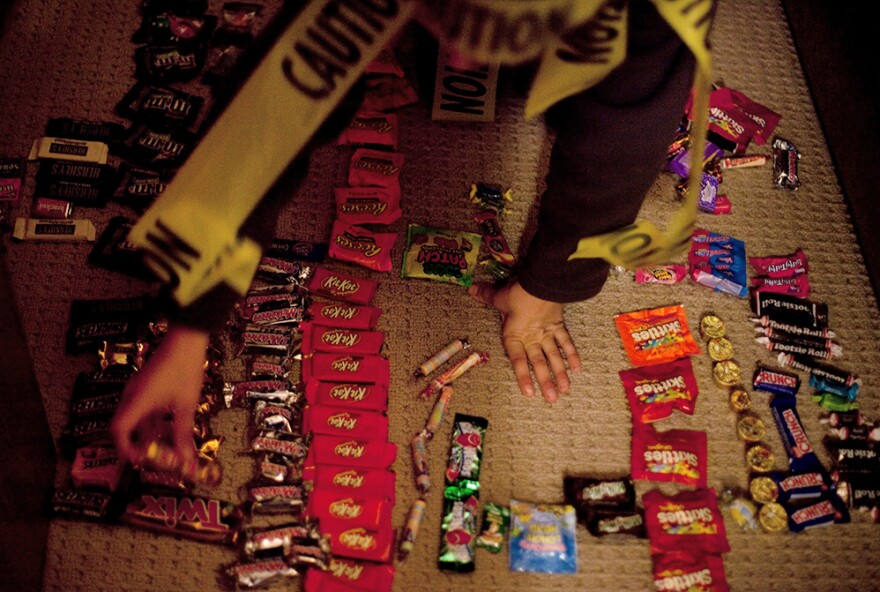Budgets may be tight, but that didn't stop Americans from throwing down more money for Halloween candy this year than ever before.
As Susan Whiteside of the tells The Salt, Americans spent an average of $7.36 per person, or $2.3 billion total, on Halloween candy in 2011. There's an astounding array of choice out there too, with 20,000 individual bar codes for distinct candy products on the market, according to the NCA. Under the Reese's name alone there are more than 20 different nutty concoctions. (The New England Confectionery Company got a taste of just how strongly Americans feel about their candy over natural colors and flavors.)
But not all candy is created equal, as all children will tell you. And increasingly American kids are getting an early lesson in — and business — by finding ways to trade their Halloween candy with friends and siblings.
I decided to peek in on a candy trading party in one of Trick-or-Treat scenes in the country — Washington, D.C. I spent the evening with 25 kids, most about 11 years old, who aggressively traded candy after working the streets of the Chevy Chase neighborhood Monday night.
Within seconds of returning home, the first group at the trading party spilled their pillow cases onto the floor and started making piles.

Ben Wallach's "candy shop" of recently acquired Halloween sweets is open for business.
Sierra quickly became the queen of Reese's by jumping into the market early. While most kids were still organizing their piles by brand, she was already making moves and trading her way to a hefty collection of Reese's Pieces and Peanut Butter Cups.
Lauryn Donahue displayed a solid grasp of the concept of excess supply. She was working hard to move the less-desirable candy given out at her house earlier that night.
"It's from my home," the 10-year-old, dressed as the daughter of Frankenstein, said. "I have lots of gummy body parts."
The decibel level in the candy-trading room rivaled that of Wall Street. The trading peaked about 20 minutes in as cross-room deals had Milk Duds flying overhead while a Jolly Rancher came the other way. Whoppers went for Smarties. Kit Kats went for a Twix. Charleston Chews, the pennies of the lot, didn't seem to move at all.
When a new wave of ghosts and clowns came through the door, the traders grabbed the bags of the recent arrivals to see if they had anything to offer.
When someone asked if Ben Wallach, 11, wanted to trade away his Kit Kat bar, he thought about it for a second. Then he motioned for the potential customer to walk his way.
"Come into my candy store," he said with the air of a true salesman.
When asked to put a dollar value on their loot, the kids fired out answers anywhere between $50 and $100.
As the trading died down, the candy consumption began. Everyone seemed satisfied with the deals they had made. And if not, Tuesday at school would bring a whole new group of potential consumers to trade with.
Sierra piled her heap of peanut butter candy into her bag.
"I did good," she said.
Copyright 2020 NPR. To see more, visit https://www.npr.org. 9(MDAxNDQ2NDAxMDEyNzU2NzM2ODA3ZGI1ZA001))




